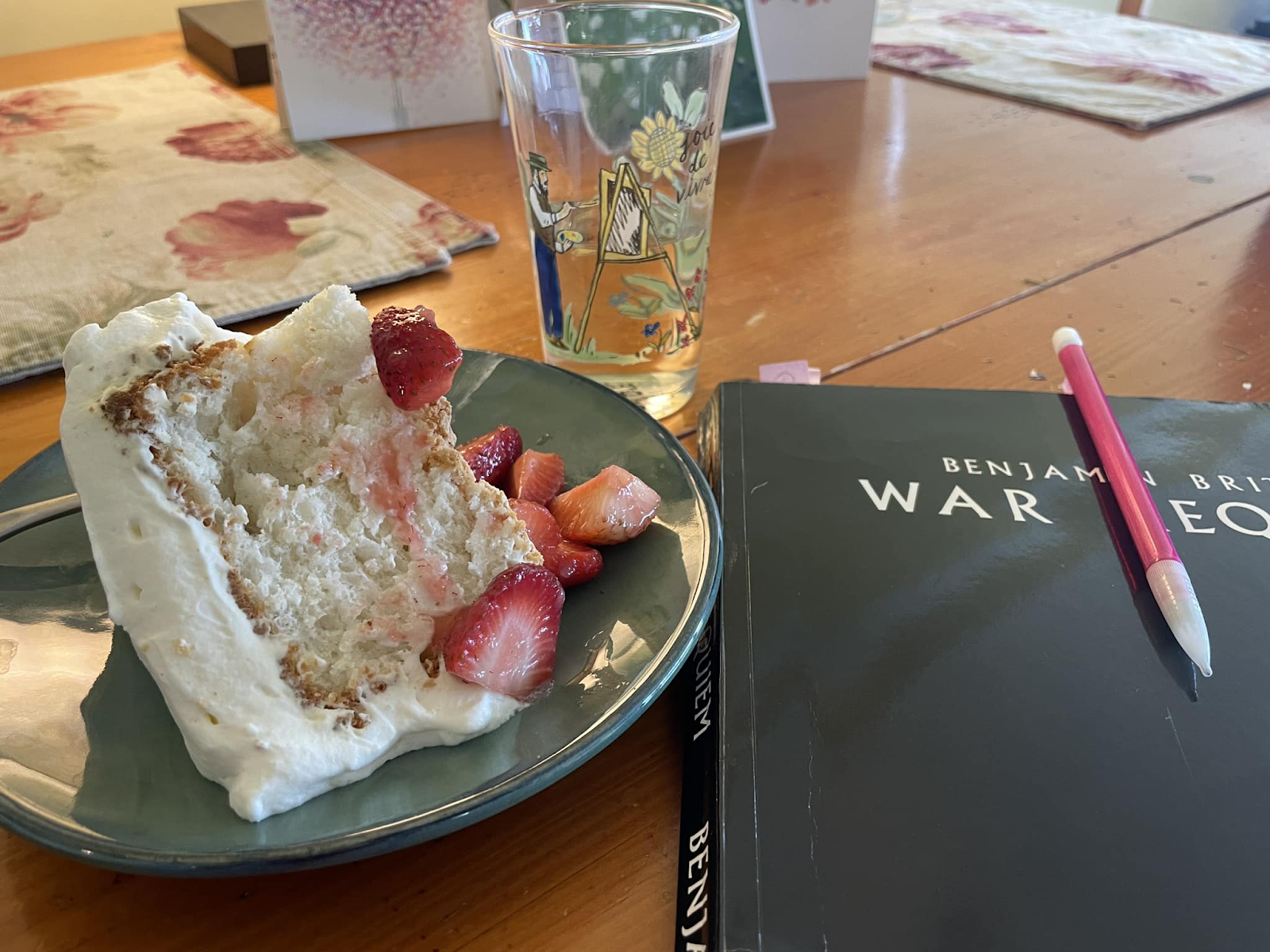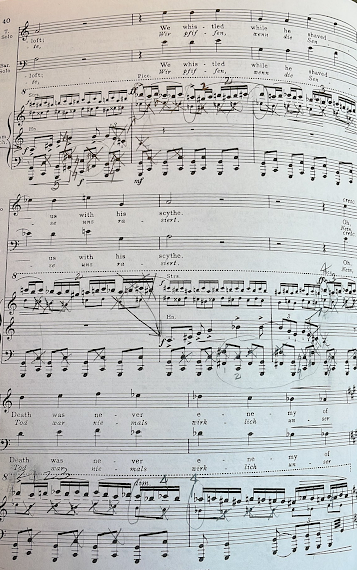And as always, I welcome any thoughts or questions in the comments for this post. My hope is that we can all learn from and inspire one another with the goal of ensuring that sharing music with one another and with our community will continue to have an important place in our world.
First, here is the description of the series on our website:
“Alma Del Core is a chamber music concert series that unites musicians from across our region - students, amateurs, and professionals - who wish to share music they love, both old and new. Our aim is to provide new opportunities for musicians to perform collaboratively and to present the music of historically underrepresented composers.
This series was founded in keeping with Alma Ensemble's mission to create community through great music. We look forward to spending time exploring all of these new works and greeting new performers as they join us in this collaboration.”
Something that is not stated in this description is that another goal of ours is to create a safe space for all musicians to perform in without feeling like they’re being judged but rather that they have cheerleaders in us, the members of the Alma Ensemble, and in the other participants. We make it clear that we ourselves aren’t perfect so we don’t ever aim for or deliver “perfect” performances. We instead aim to deliver a gift to ourselves through music and to get more and more comfortable performing in public. What’s happened over the years is that the performers also find cheerleaders in our audiences. We have so many that make a point of attending as many concerts as they can because they have grown to love them. That is exactly our point in doing what we do. Our audiences wouldn’t return time and time again if they didn’t see the performances as something nourishing and valuable. Seeing and feeling that enthusiasm in turn feeds each musician that performs.
Here are some other points that seem worth mentioning:
- We don’t expect anyone to perform by memory. That is up to each performer.
- We ask performers to consider saying just a few words about the music they are performing prior to playing, encouraging them to keep it simple, make it personal, and to not necessarily delve into nerdy, academic points unless that’s something that appeals to them. We feel the audience enjoys an extra glimpse into the music and the performer and also can help the performer feel less alone on stage. It’s a good way to calm nerves (once they can get over any qualms about public speaking) and feel like a part of the community as a whole.
- Whenever we can we pick pieces that combine professionals with students and/or amateurs so that we are performing side by side. When I was young I frequently had opportunities to perform with professionals. It was in those moments I learned much more than I ever learned in lessons. To ride the performance wave with a professional can be a powerful, exhilarating, and dare I say addictive endeavor. And inspiration flows in multiple directions. For a professional, playing with a young musician or with an enthusiastic amateur can be a great reminder of why we do what we do.
- We keep our performances to one hour in length, with no intermission. Intermissions can pop the magical bubble that is created the moment a performance begins so we try to avoid that.
- We do not stipulate which style of music to perform. We welcome any genre. To us it is all music.
- We encourage performances of compositions composed by the performers themselves.
- Our dress rehearsals and sound checks are treated as open rehearsals. We use this time to do our cheerleading bit, sprinkled, if we think it would be helpful and well-received, with constructive feedback.
- All of our performers are paid. We believe strongly in the importance of doing that so that we are acknowledging that what we do has value. At this point we pay $75 to any student 18 and above, amateur, and professional. For students under the age of 18 we give them a gift card.
- We stress to participants that a value of performing more is to have more than one experience to perform any given piece. We, as a trio and as soloists, use these concerts as a first-go for pieces that are new to us and it gives us the opportunity to explain to younger musicians and amateurs that even professionals can feel uncomfortable time performing something for the first time; that is takes multiple performances to feel like we really know what we’re doing and to hammer out the tricky spots that need more work. It reminds us all that each performance is a step in the journey we have with any given piece. No performance should feel like our only chance to get it right.
Some ideas for the future of our series:
- So far we’ve held our concerts in the same space but I think it would be great for us to take a version of what we do out into the community as well. Giving participants who wish to do so more opportunities to perform the same piece in close succession. And of course it would also expand our reach.
- I’d also love to invite professionals from outside our community to join us. Perhaps a soloist that comes into town to perform with the symphony or other organization. Tricky scheduling-wise and would require more funding, but I think it would be even more inspiring and empowering for all of our participants.
- I would love to see others take on something similar to this idea. We truly believe that the future of live performing is in the hands of not only the professionals, but of anyone who is willing to put themselves out there to perform.
Do you do something similar in your area? Do you have any additional thoughts or ideas? Do you have any interest in trying something similar?
Let me know in the comments!









